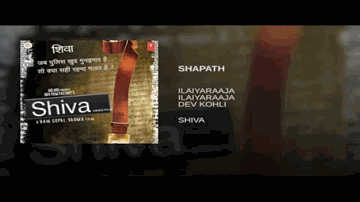Ilaiyaraaja
Artist Info
Bio: <p>Born and brought up in an obscure village near Kambam in Southern Tamil Nadu, Ilayaraja became the first Asian to score a symphony for the London Philharmonic Orchestra, besides scoring over 1000 feature films in a period of 38 years. Raja, as he is popularly known and affectionately called, comes from a family of musicians. His mother, a huge repository of Tamil folk songs, seems to be a very strong influence in his music. He learned to play the harmonium, the typical musical instrument used in street performances. The team of the brothers, the eldest being Pavalar Varadharajan, a poet, worked as a group of musicians traveling across the state, accompanying theater artists. Raja picked up most of his acumen for audience tastes during this period.</p><p>In 1969, Raja migrated to the city of Madras, the Southern Movie capital, when he was 25 years old, looking for a break into music making for the public. He studied under Dhanraj Master, playing the guitar and piano in the Western style. Ilayaraja's break into music for films came with Annakili in 1976. The film dealt with a village story, to which Ilayaraja composed great melodies. The songs offered simplicity and musicality typical of Tamil folk in an authentic way, and they offered new sounds--rich orchestration typical of Western music. The songs became an instant hit, the most popular being "Machchana Partheengala" sung by a female voice, S. Janaki. This was followed by a series of films that portrayed contemporary Tamil villages in an authentic way, against stylistic shallow portrayals before. For all of these films Raja created memorable songs. Most popular were the songs "Senthoorappove" and "Aatukkutti Mutaiyittu" from Pathinaru Vayathinile (1977), and "Samakkozhi" and "Oram Po" from Ponnu Oorukku Pudhusu (1979).</p><p>Raja soon proved his abilities in other styles as well. classical Karnatic melodies were used in Kannan Oru Kai Kuzhandhai (1978) (Rag Mohanam), Mayile Mayile (Ragam Hamsadhwani), and Chinn
Born: June 2, 1943 in Pannaipuram, Theni, Madras Presidency, British India
